
If you study world countries, you’ll realize just how unique each one is.
So many things are different from one country to another: the economy, language, culture, resources, size, and the list goes on. But within these differences, we can always find commonalities that bring countries closer together. It could be the way we use technology, our ethical beliefs…
It could even be something more interesting—and fun—like animals!
Learning the names of animals in Arabic will make your conversations with native speakers much more engaging and fun. Wherever you go, people will have pets, and everyone has stories to share about their favorite animals.
But in order to engage in these conversations, you’ll need the right vocabulary.
That’s exactly what you’ll find here! ArabicPod101 has compiled a masterlist of the essential Arabic animal words you’ll need to talk about pets, wild animals, reptiles, and more. We’ve also included a few “extras” for you at the end. 😉
 Table of Contents
Table of Contents
- At Home (Pets)
- On the Farm (Farm Animals)
- In the Wild / Forest / Safari (Land Animals)
- In the Ocean (Aquatic / Marine Animals)
- Bugs and Insects
- Birds
- Reptiles & Amphibians
- Animal Body Parts
- Animal-Related Idioms and Slang Expressions
- Conclusion
1. At Home (Pets)

Like in most of the world, cats and dogs are the most popular pets in Arabic-speaking countries. Many people also like to keep birds, while rats and mice are very rarely kept as pets.
In countries like the UAE and Saudi Arabia, wealthy people often raise exotic animals as pets (such as jaguars and lions). However, this trend is becoming less and less popular.
For familiarity’s sake, here are the animal names in Arabic for the most common pets in Western countries:
| قِط | qiṭ | cat |
| كَلب | kalb | dog |
| هامستر | hamster | hamster |
| أَرنَب | ʾarnab | rabbit |
| فَأر | faʾr | mouse |
| جُرَذ | ǧuraḏ | rat |
| خِنزير غيني | ḫinzīr ġīnī | guinea pig |
| سَمَك ذَهَبي | samak ḏahabī | goldfish |
| بَبَّغاء | babbaġāʾ | parrot |
2. On the Farm (Farm Animals)
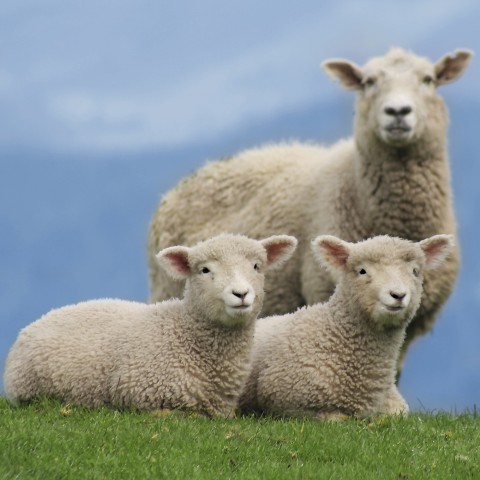
Farming is still big in Arab countries, where many people have to rely (partially or fully) on their own crops to eat and survive. This is because the economies in many of these countries are not very dynamic and provide few jobs. Agriculture plays a crucial role in the economies of countries like Sudan, Egypt, Morocco, and Algeria.
Many people still rely on traditional farming methods, using animals for plowing and fertilization. The farm animals you’re used to in the West are pretty much the same as those in the Arab world.
Here’s a list of farm animals in Arabic:
| بَقَرَة | baqarah | cow |
| خِنزير | ḫinzīr | pig |
| خَروف | ḫarūf | sheep |
| ماعِز | māʿiz | goat |
| حِصان | ḥiṣān | horse |
| دَجاجَة | daǧāǧah | hen |
| ديك رومي | dīk rūmī | turkey |
| بَجَعَة | baǧaʿah | goose |
| بَطَّة | baṭṭah | duck |
| ديك | dīk | rooster |
3. In the Wild / Forest / Safari (Land Animals)

Following the spread of firearms, many wild mammals in Arabic-speaking countries had bounties placed upon them. This resulted in the extinction of many species, including the Atlas lion.
Atlas lions (or Barbary lions) were a lion population found in North Africa, particularly throughout the Maghreb region and in Egypt. Due to the continuous hunting of this species, it has been extinct since the late 1960s.
Still, there are plenty of wild animals that still abound in the Arab world. One can still find animals such as boars, foxes, hares, and wolves out in the wilderness.
| دُب | dub | bear |
| ذِئب | ḏiʾb | wolf |
| غَزال | ġazal | deer |
| أَرنَب بَرّي | ʾarnab barrī | hare |
| ثَعلَب | ṯaʿlab | fox |
| قُنفُذ | qunfuḏ | hedgehog |
| سِنجاب | sinǧāb | squirrel |
| خِنزير بَرّي | ḫinzīr barrī | boar |
| قُندُس الأَرض | qundus al-ʾarḍ | groundhog |
| أَسَد | ʾasad | lion |
| نَمِر | namir | tiger |
| جاكوار | ǧākwar | jaguar |
| نَمِر | namir | panther |
| فيل | fīl | elephant |
| زَرافَة | zarāfah | giraffe |
| قِرد | qird | monkey |
| غوريلا | ġūrīlā | gorilla |
| كَنغَر | kanġar | kangaroo |
| كوالا | koala | koala |
| باندا | bāndā | panda |
| كَسلان | kaslān | sloth |
| فُقمَة | fuqmah | seal |
| بَطريق | baṭrīq | penguin |
| دُب قُطبي | dub quṭbī | polar bear |
| فَظ | faẓ | walrus |
4. In the Ocean (Aquatic / Marine Animals)

Did you know that the Arabian Peninsula is surrounded by five bodies of water? There’s the Red Sea (West), Persian Gulf (East), Gulf of Aden (Southwest), Gulf of Oman (Southeast), and the Arabian Sea/Indian Ocean (South).
Morocco has the Atlantic Ocean (West) and the Mediterranean Sea (North), and it shares the latter with other North African countries including Egypt, Libya, Tunisia, and Algeria.
Therefore, learning the names of marine animals in Arabic may come in handy for many situations. A great example is when reading Arabic literature, as marine animals are frequently used in hypothetical descriptions.
Here’s a list of 12 aquatic animals to get you started…
| سَمَك | samak | fish |
| قِرش | qirš | shark |
| دولفين | dūlfīn | dolphin |
| حوت | ḥūt | whale |
| أَسَد البَحر | ʾasad al-baḥr | sealion |
| قِنديل البَحر | qindīl al-baḥr | jellyfish |
| أُخطُبوط | ʾuḫṭubūṭ | octopus |
| فَرَس البَحر | faras al-baḥr | seahorse |
| قُنفُذ البَحر | qunfuḏ al-baḥr | urchin |
| نَجم البَحر | naǧm al-baḥr | starfish |
| بَلَح البَحر | balaḥ al-baḥr | mussel |
| خِيَار البَحر | ḫiyar al-baḥr | sea cucumber |
5. Bugs and Insects
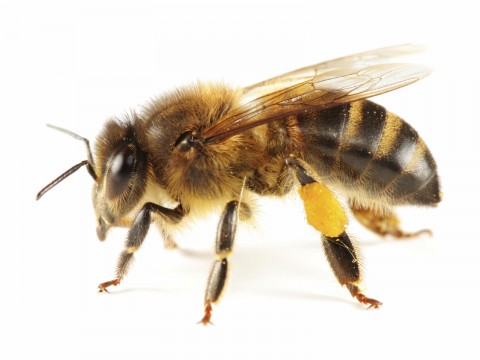
If you plan on visiting an Arab country, learning the names of bugs and insects might prove useful. You never know when mosquitos in Mauritania will interrupt your sleep, or when a couple of flies will start roaming around your food in Morocco.
While there are plenty of annoying bugs to complain about, there are also beautiful insects to find in nature as you travel. Many of them are subspecies you’ve never seen before!
Below is a list of 12 words for bugs and insects in Arabic:
| نَحلَة | naḥlah | bee |
| دَبّور | dabbūr | wasp |
| بَعوضَة | baʿūḍah | mosquito |
| ذُبابَة | ḏubābah | fly |
| عِنكَبوت | ʿinkabūt | spider |
| جَراد | ǧarād | grasshopper |
| صُرصور | ṣurṣūr | cockroach |
| فَراشَة | farāšah | butterfly |
| نَملَة | namlah | ant |
| عُثَّة | ʿuṯṯah | moth |
| حَلزون | ḥalzūn | snail |
| بُزاق | buzāq | slug |
6. Birds
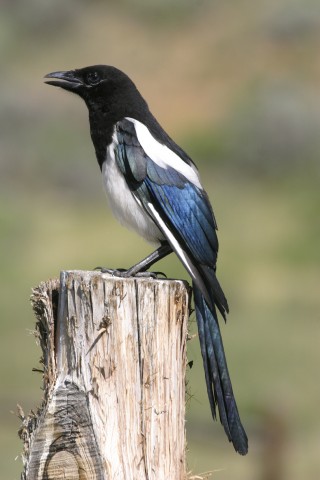
Since the times of messenger pigeons, birds have been close friends with people around the world, including in the Arabian Peninsula and some of today’s Arabic-speaking countries.
| الورَس | nawras | seagull |
| غُراب | ġurāb | crow |
| نِسر | nisr | eagle |
| حَمامَة | ḥamāmah | dove |
| بومَة | būmah | owl |
| عُقعُق | ʿuqʿuq | magpie |
| عَصفور | ʿaṣfūr | sparrow |
| طاوُوس | ṭāwūs | peacock |
7. Reptiles & Amphibians
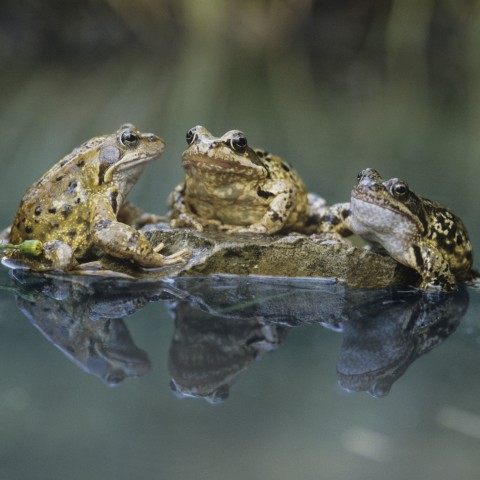
Reptiles are common around deserts in the Arabian Peninsula and North Africa, so there’s a good chance you’ll encounter a few if you visit these areas. You could even get a chance to play with snakes in Marrakech (Morocco’s cultural capital) or probably anywhere in the UAE.
In most Arab cultures, toads (and reptiles/amphibians in general) are thought to bring bad luck. You should avoid approaching or touching such animals in the wilderness, as this is not something your Arab friends will have fun watching or joining in.
| ضِفدَع | ḍifdaʿ | frog |
| عَلجوم | ʿalǧūm | toad |
| تِمساح | timsāḥ | crocodile |
| سِحلِيَّة | siḥliyyah | lizard |
| سُلحِفاة | sulḥifāh | turtle |
| سُلحِفاةُ البَحر | sulḥifāẗu al-baḥr | sea turtle |
| ثُعبان | ṯuʿbān | snake |
8. Animal Body Parts
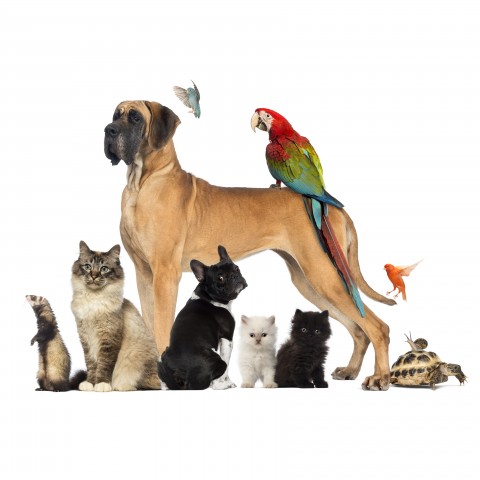
The next set of Arabic animal words we’ll look at are the terms for body parts. Learning these terms will allow you to share that story of the time your dog hurt its tail, or to describe the strange bird you saw on your last hiking trip.
| ذَيْل | ḏayl | tail |
| شَعر | šaʿr | hair |
| فِراء | firāʾ | fur |
| سِن | sin | tooth |
| ناب | nāb | fang |
| مِخلَب | miḫlab | claw |
| قَرن | qarn | horn |
| حافِر | ḥāfir | hoof |
| ريش | rīš | feather |
| جَناح | ǧanāḥ | wing |
| مِنقار | minqār | beak |
| فَم | fam | mouth |
| زُعنُفَة | zuʿnufah | fin |
| مِجَس | miǧas | tentacle |
| جِذع | ǧiḏʿ | trunk |
| ناب | nāb | tusk |
| قَرن اِستِشعار | qarn istišʿār | antenna |
| رِجل | riǧl | leg |
| حَرشَفَة | ḥaršafah | scale |
9. Animal-Related Idioms and Slang Expressions
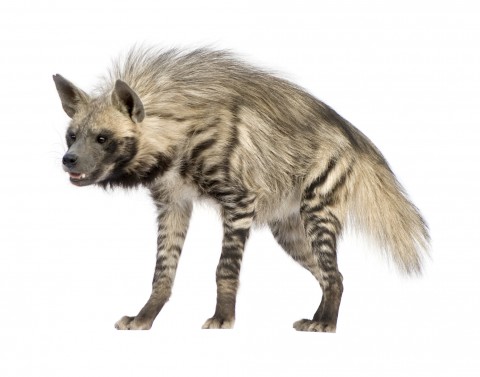
As promised, here are some extra animal words in Arabic for you! Below, you’ll find animal curse words and animal-related idioms that are common in Arabic-speaking countries.
Animal Curse Words
Animal curse words exist in every language, but the animals used change from one language to another.
Did you know that the word “animal” itself is an insult in Arabic? This is in contrast to how it’s often used in American English, as a compliment to describe someone with great drive or power.
Here are a few animal curse words in Arabic along with their romanizations and translations:
| Curse Word | Romanization | Translation |
| جَحش | ǧaḥš | colt |
| كَلب | kalb | dog |
| حَيَوَان | ḥayawaān | animal |
| ضَبع | dabʿ | hyena |
| حِمار | ḥimār | donkey |
Idioms
| Idiom | Romanization | Literal Translation | Meaning |
| يَدفِنُ رَأسَهُ في التُراب كَالنَعام | yadfinu raʾsahu fī al-turāb kal-naʿām | Bury one’s head in the sand like an ostrich | To be in denial |
| يَهرَبُ كَالفأر | yahrabu kal-faʾr | Run away like a mouse | To be a coward |
| مَكّار كَالثَعلَب | makkār kal-ṯaʿlab | Cunning like a fox | Extremely cunning (negative connotation) |
| يُكَرِّرُ الكَلام كَالبَبَّغاء | yukarriru al-kalām kal-babbaġāʾ | Repeat the words like a parrot | To be a person who can’t think for themself, so they repeat whatever they hear |
Conclusion
Congratulations for getting this far. You’re now armed with all the Arabic animal words you need to name every animal at the zoo. Knowing these words will also make it easier for you to read children’s stories and basic Arabic narrations, as animals play a major role in this type of literature.
To practice your newfound knowledge, let us know in the comments what your favorite animal is in Arabic!
Feel like more Arabic practice?
Enter ArabicPod101.
ArabicPod101 provides a full learning system for beginners, intermediate learners, and advanced students. We integrate thousands of video, audio, and text lessons with the best learning technologies (digital flashcards, pronunciation comparison tools, line-by-line breakdowns, etc.) to guarantee the best results for you in the least amount of time.
You can even request your own personalized learning program from one of ArabicPod101’s native Arabic-speaking language experts.
Heck, you can even try everything for yourself, free of charge.
Create your free lifetime account today to get started.
تَعَلُّماً مُمتِعاً!
taʿalluman mumtiʿan!
Happy learning!









